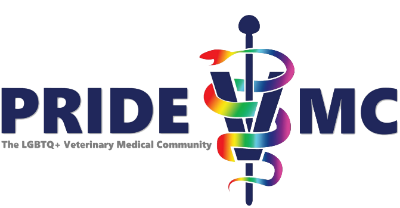Intersectionality and Gender Diversity
Gender Diversity and Intersectionality
In 1989, when legal scholar Kimberlé Crenshaw introduced “intersectionality” into academic lexicon via her publication titled, “Demarginalizing the Intersection of Race and Sex: A Black Feminist Critique of Antidiscrimination Doctrine, Feminist Theory and Antiracist Politics,” she was grappling with a phenomenon that legal scholars up to this point had not adequately explained. This includes the ways in which Black women’s experiences of oppression were being erased from antidiscrimination law, which focused on middle- and upper-class Black men, and second-wave feminist theory and antiracist politics, which focused on middle- and upper-class White women. It is within the context of Black feminist critique, and the third wave of feminism, that Crenshaw explored this erasure and proposed an intersectional framework (or lens) for better understanding the multidimensionality of oppression.
In other words, the intersectional framework highlights the complexities of discrimination and oppression, which occur across various social identities such as race, ethnicity, class, gender, sexual orientation, nationality, ability, etc. In her use of this framework, Crenshaw proposed that “any analysis that does not take intersectionality into account cannot sufficiently address the particular manner in which Black women are subordinated.”
Whereas third-wave feminist scholars from the 1990s onward utilized the intersectional framework for exploring issues such as violence against women and girls of color, racialized gender pay gaps, and media (mis)representations (or the lack thereof) for women of color, “intersectionality” only recently came into popular culture lexicon, likely related to the boom in US social media use since 2010. Perhaps because of this popularity, though, many more scholar and activist works extolling the value of intersectionality for better understanding the experiences of marginalized communities and populations have gained attention.
Among these are works such as Redefining Realness: My Path to Womanhood, Identity, Love & So Much More, by Janet Mock (2014), a multiracial transgender woman who grew up poor in New York, and Beyond the Gender Binary, by Alok Vaid-Menon (2020), a gender-nonconforming artist who grew up with immigrant parents in Texas. What these activists highlight through their writing is the importance of recognizing how difference is treated across the intersections of oppression.
Concerning human rights, including the right to gender expression free from discrimination and violence, the intersectional framework is an important tool for reminding us that gender rights and justice are intimately tied to and inseparable from other human rights concerning race, ethnicity, class, sexual orientation, nationality, ability, etc. Moreover, as we seek to create equitable and inclusive workplaces and academic institutions for transgender, nonbinary, and gender-nonconforming individuals in veterinary medicine, we must further act on creating equitable and inclusive workplaces and academic institutions that affirm and support individuals across their many identities and experiences.
For example, educational institutions could work to incorporate an inclusive framework into their curriculum, one that represents the lives and experiences of transgender, non-binary, and gender non-conforming Black, Indigenous, and people of color (BIPOC), and one that is holistically incorporated throughout the curriculum rather than additive to the curriculum. Also, organizations could create policies and practices that affirm and support transgender, non-binary, and gender non-conforming BIPOC employees and clients, recognizing that they may face many hardships and possibly violence simply by being true to themselves. From an intersectional standpoint, understanding and addressing the historical and contemporary complexities of privilege, bias, and oppression in society are necessary for creating equitable and inclusive environments for all.
Contact Us
We want to hear from you. Please contact us with any questions, suggestions or inquiries.
©2023 PrideVMC | 584 Castro Street, #492 | San Francisco, CA 94114, USA
